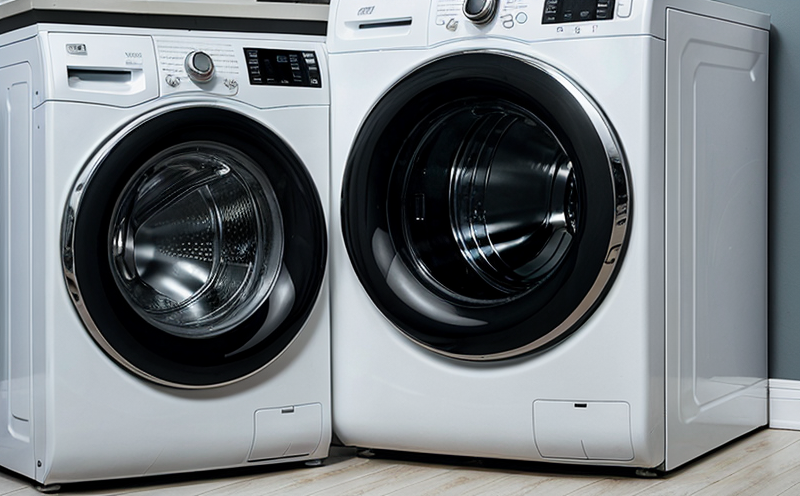Safety in Home Appliances: A Comprehensive Guide
Home appliances have become an integral part of modern life, making our daily tasks easier and more convenient. However, these devices can also pose a significant risk to our safety if not used properly or maintained regularly. In this article, we will discuss the importance of safety in home appliances, highlight common hazards associated with them, and provide detailed information on how to use and maintain appliances safely.
Common Hazards Associated with Home Appliances
Home appliances can be hazardous due to various reasons, including faulty wiring, overheating, electrical shock, and fires. Some common hazards associated with home appliances include:
Electrical Shock: Electrical appliances such as refrigerators, washing machines, and air conditioners can cause electrical shock if not installed correctly or maintained properly.
Overheating: Appliances like clothes dryers, ovens, and dishwashers can overheat due to faulty components or poor maintenance, leading to fires and burns.
Fires: Electrical appliances, gas stoves, and fireplaces can cause fires if not used carefully or maintained regularly.
Preventing Hazards in Home Appliances
To prevent hazards associated with home appliances, follow these safety tips:
Always read the user manual before using a new appliance.
Regularly inspect appliances for signs of wear and tear.
Keep appliances away from water sources to prevent electrical shock.
Never leave appliances unattended while they are in use.
Replace faulty or worn-out parts promptly.
Detailed Information on Safety Features in Home Appliances
Some home appliances come equipped with advanced safety features that can help prevent hazards. Heres a detailed look at some of these features:
Ground Fault Circuit Interrupter (GFCI) Protection: GFCI protection is designed to detect ground faults and interrupt the power supply in case of an electrical shock.
Thermal Cut-Offs: Thermal cut-offs are safety devices that trip when an appliance overheats, preventing fires and burns.
Detailed Explanation of Safety Features:
Some appliances come equipped with advanced safety features such as:
GFCI Protection
GFCI protection is a built-in feature in many home appliances that detects ground faults and interrupts the power supply.
It works by monitoring the current flowing through the appliance and tripping when it senses an imbalance.
This prevents electrical shock and fires caused by ground faults.
Thermal Cut-Offs
Thermal cut-offs are designed to trip when an appliance overheats, preventing fires and burns.
They work by monitoring the temperature of the appliance and tripping when it reaches a critical level.
This prevents damage to the appliance and reduces the risk of fires.
QA Section
Heres an extensive QA section that provides additional details on safety in home appliances:
Q: What are the common hazards associated with home appliances?
A: Common hazards associated with home appliances include electrical shock, overheating, and fires.
Q: How can I prevent electrical shock from home appliances?
A: To prevent electrical shock from home appliances, always read the user manual before using a new appliance, regularly inspect appliances for signs of wear and tear, keep appliances away from water sources, never leave appliances unattended while they are in use, and replace faulty or worn-out parts promptly.
Q: What is GFCI protection?
A: GFCI protection is a built-in feature in many home appliances that detects ground faults and interrupts the power supply.
Q: How does thermal cut-off work?
A: Thermal cut-offs are designed to trip when an appliance overheats, preventing fires and burns. They work by monitoring the temperature of the appliance and tripping when it reaches a critical level.
Q: Why is regular maintenance important for home appliances?
A: Regular maintenance is important for home appliances as it helps prevent hazards associated with them. Regular maintenance includes inspecting appliances for signs of wear and tear, replacing faulty or worn-out parts promptly, and keeping appliances away from water sources.
Q: What are the safety features in modern home appliances?
A: Modern home appliances come equipped with advanced safety features such as GFCI protection and thermal cut-offs. These features help prevent hazards associated with home appliances.
Q: How can I ensure my home is safe from electrical fires?
A: To ensure your home is safe from electrical fires, always read the user manual before using a new appliance, regularly inspect appliances for signs of wear and tear, keep appliances away from water sources, never leave appliances unattended while they are in use, and replace faulty or worn-out parts promptly.
Q: What should I do if my home appliance starts to malfunction?
A: If your home appliance starts to malfunction, turn off the power supply immediately and inspect the appliance for signs of wear and tear. Replace faulty or worn-out parts promptly and contact a professional if you are not sure what to do.
In conclusion, safety in home appliances is crucial to prevent hazards associated with them. By following the tips mentioned above and understanding the advanced safety features in modern home appliances, you can ensure your home is safe from electrical fires and other hazards.

































